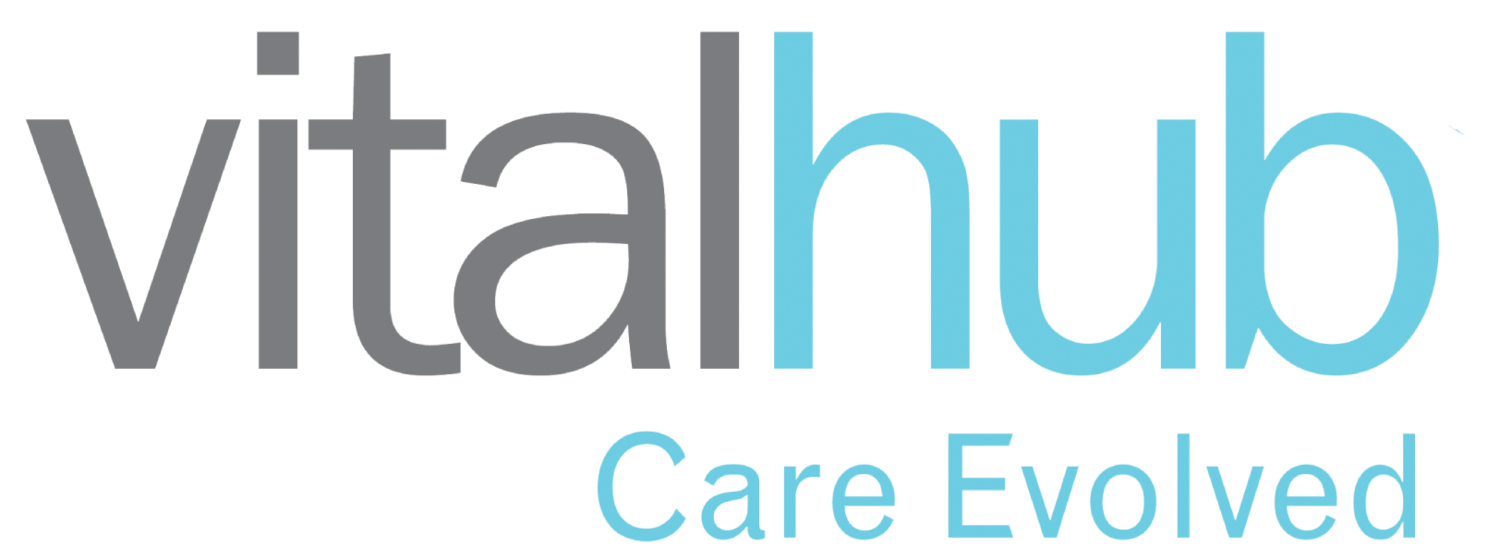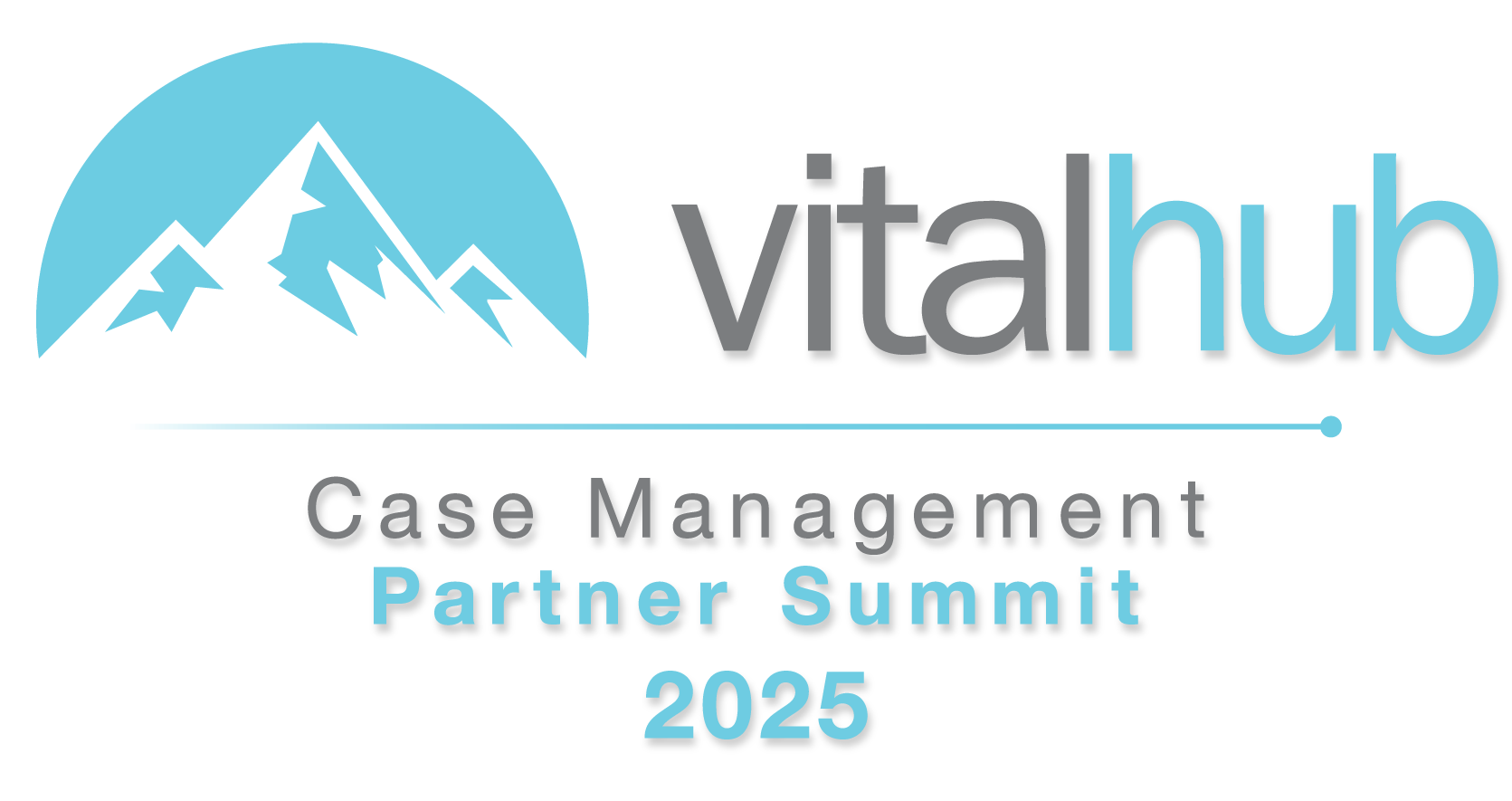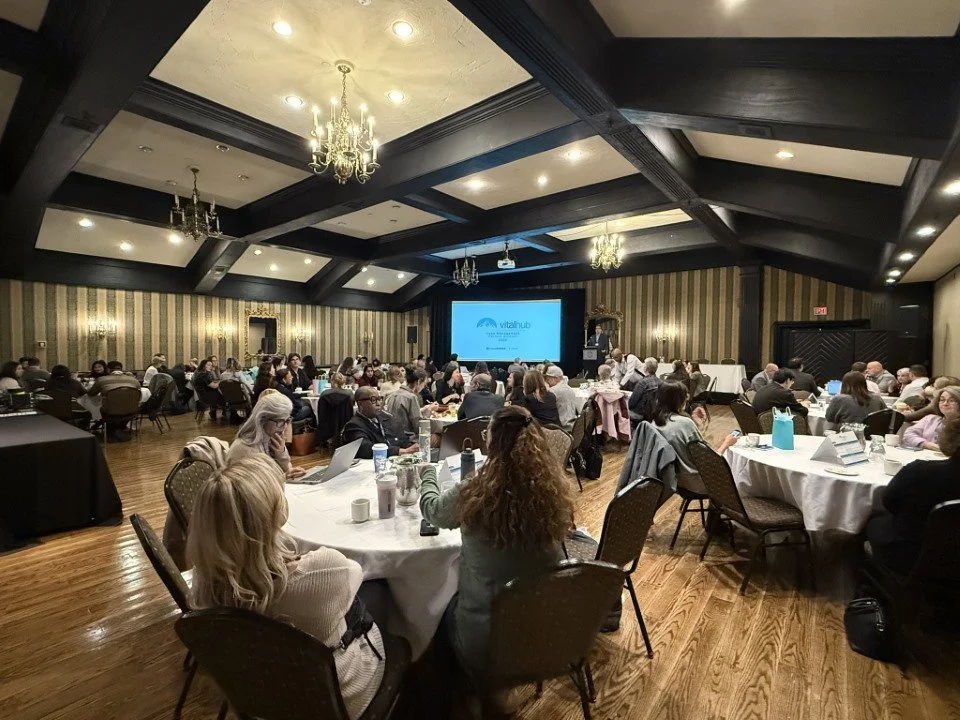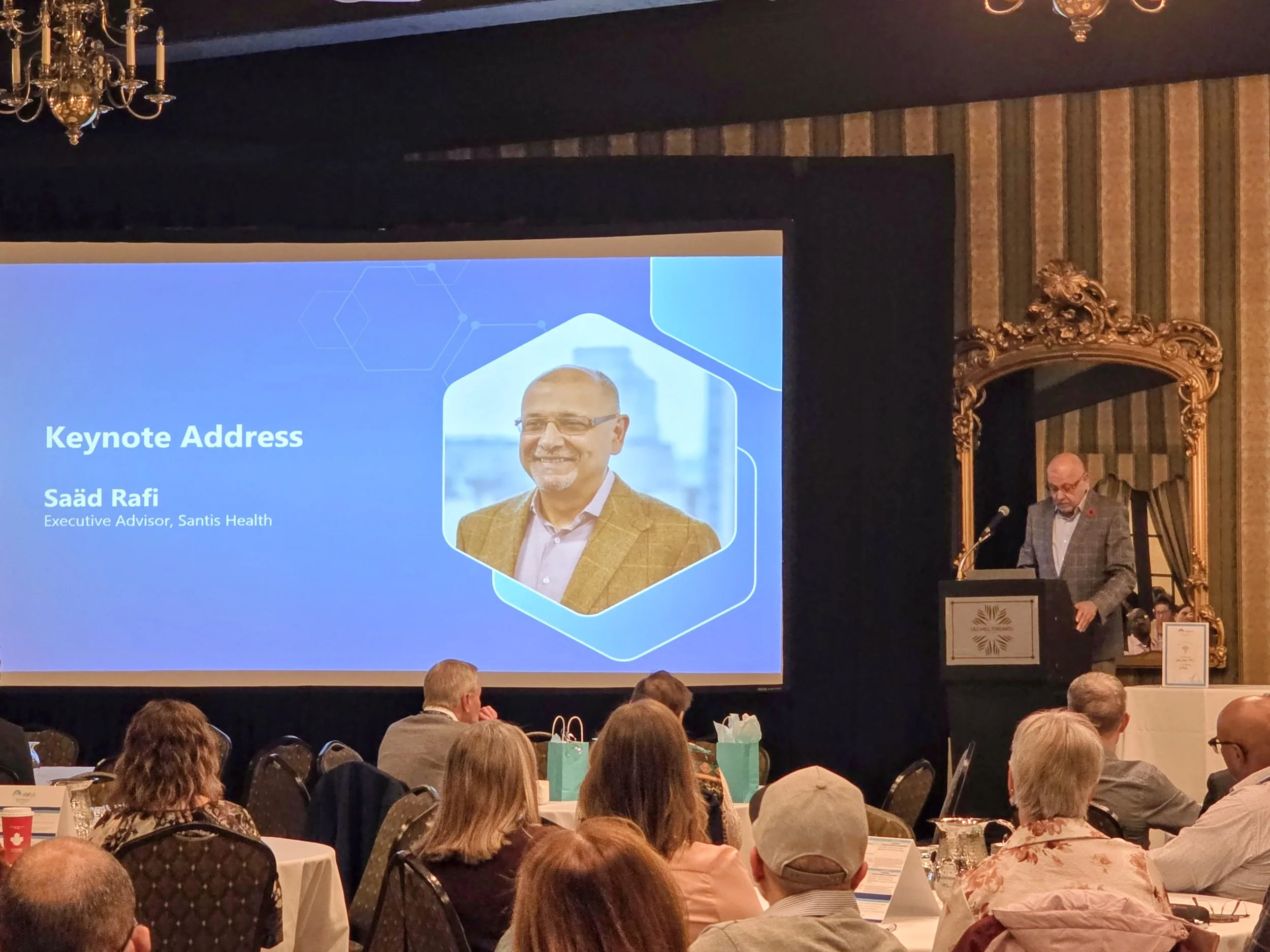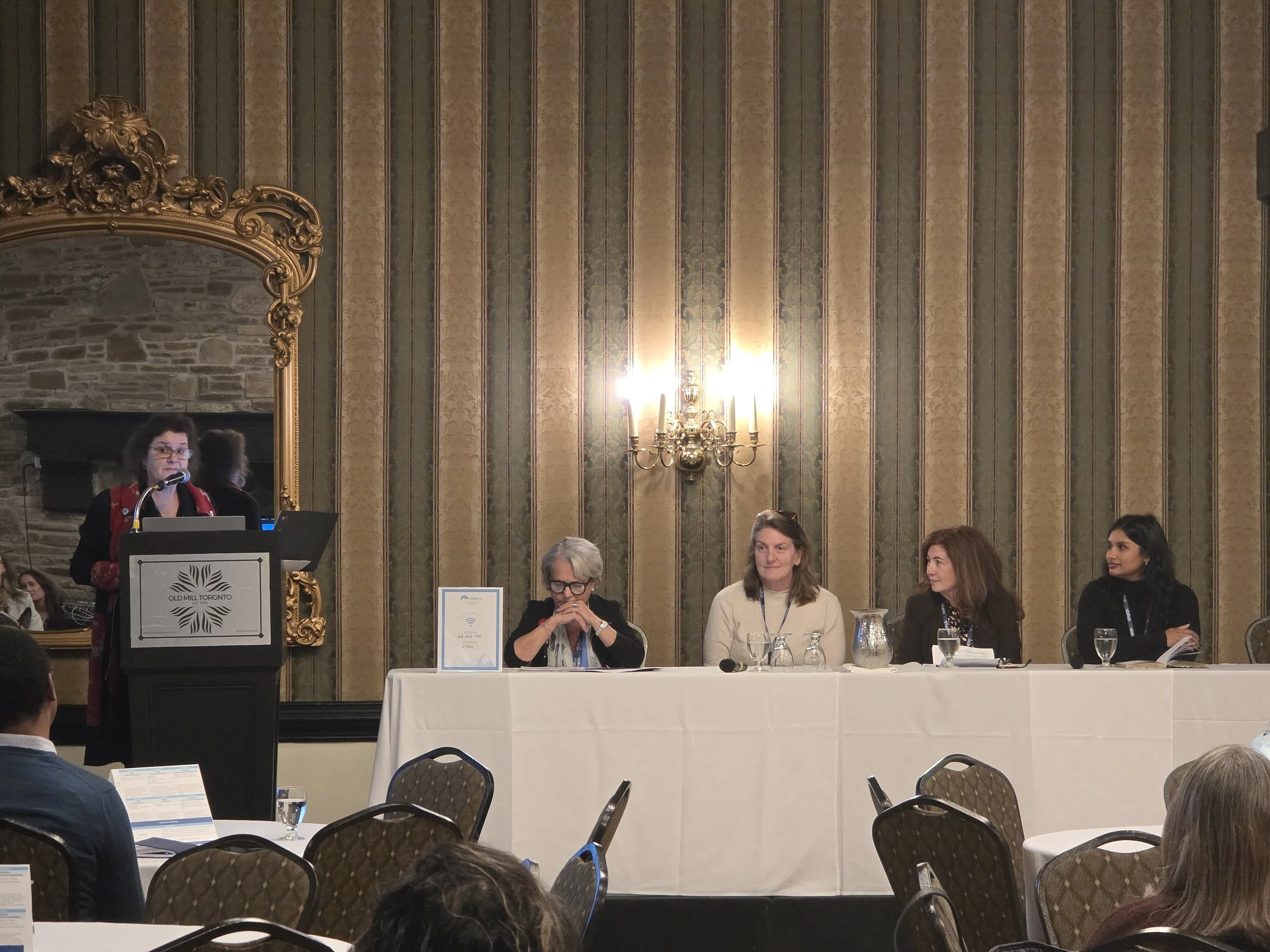2025 Case Management Partner Summit Recap
VitalHub‘s 2025 Case Management Partner Summit brought together leaders, innovators, and partners from across the community and social services sector for a full day of collaboration, learning, and transformation. Held on November 5, 2025, the event focused on shaping the future of connected care through technology, data-driven strategies, and shared best practices. Attendees explored practical solutions to today’s most pressing challenges, from managing change and aligning priorities to leveraging digital tools for improved client outcomes. With inspiring keynote insights, interactive sessions, and thought-provoking panel discussions, the Case Management Partner Summit created a platform for meaningful dialogue and actionable ideas that will drive progress across the sector.
Keynote Address
Saäd Rafi, Executive Advisor at Santis Health
Saäd Rafi, Executive Advisor for Santis Health, opened the day with an inspiring message on managing change. Saäd, shared insights on managing change drawn from leadership roles in health care, government, and sport, emphasizing that change is neither quick nor sweeping but requires focus and collaboration. Saäd highlighted the parallels between sectors, the pervasive need for mental health support, and the importance of data-driven coordination. Closing with a call to action, Saäd urged attendees to shape change—not just adapt—through clear communication, resilience, and collective effort to advance coordinated community care.
Morning Sessions
VitalHub’s Vision & Innovation Roadmap
VitalHub shared its strategy for building a connected care ecosystem, highlighting global reach, compliance standards, and investments in interoperability, AI, and client engagement tools. The roadmap showcased enhancements in case management, referral integrations, and digital learning.
Information Exchange (MHA-IE)
Presented a collaborative initiative between VitalHub and CMHA Waterloo-Wellington to develop a shared electronic client record and unified consent process for mental health and addictions care across the region. The session outlined the phased implementation approach, governance structure, privacy and compliance considerations, and the anticipated benefits for continuity and coordination of care.
Portal Solutions
Explored how portals extend system functionality, offering secure self-service access for clients and partners. Covered authentication processes, movement of information, and real-world examples like Habitat’s Facility Portal.
Knowledge Hub
Showcased VitalHub’s design for system specific solution that provides a centralized resource for support and learning, designed to empower organizations with self-service access to documentation, training materials, and product updates.
Strategic Innovation: Client Engagement via Online Forms
Showcased VitalHub’s public-facing forms, which allow clients to self-refer, complete assessments and satisfaction surveys, and register for programs without portal access. For organizations already leveraging online forms, shared insights on our upcoming enhanced platform designed to accelerate form creation, standardize workflows, and increase efficiency—empowering VitalHub to respond quickly and consistently to evolving client needs.
AI Initiatives
Discussed VitalHub’s approach to responsibly embedding AI into its ecosystem, focusing on automated scribing, predictive analytics, and centralized data platforms to enhance efficiency and decision-making.
Global Reporting
VitalHub is designing a Unified Data Lakehouse architecture built around anonymized and privacy-protected data as the default, ensuring that any consolidated information from across our products is handled securely and responsibly. This approach enables standardized analytics, real-time BI integration, and compliant access through secure APIs.
TREAT Break Out Sessions
Ongoing Staff Education
This session covered VitalHub’s current educational offerings including education sessions, Train-the-Trainer, Treat Admin, Form Builder, and WebFocus. We introduced our vision for the future including new approaches to help your team progress from foundational skills to advanced concepts that improve efficiency and maximize functionality. We also shared our vision for a digital learning experience starting with short, focused videos and moving toward an interactive Learning Management System with quizzes, progress tracking, and certifications. This is just the beginning, with upcoming monthly webinars, more enhancements and learning opportunities on the way as we transform how your team learns anytime and anywhere.
Reporting Priorities
This session addressed the need for simpler, more consistent reporting. Attendees learned about strategies to make data easier to access, enable self-service reporting, and move toward standardized frameworks. The goal was to empower organizations with tools that improve efficiency, transparency, and decision-making.
Measurement Based Care
Co-presented with Deena Dulabh, CIS/EHR Clinical SME at Lumenus Community Services, this session focused on how organizations can harness TREAT and real-time data to enhance their measurement-based care (MBC) initiatives and drive improved client outcomes. The panel delved into the foundational principles of measurement-based care, shared practical implementation strategies, and examined how standardized assessments and reporting tools can empower evidence-based decision-making. A key theme was the importance of utilizing the full spectrum of client data captured by organizations—not just standardized tool outcomes—to inform and elevate care delivery.
Care Planning
In this session, attendees explored how feedback from our customers has shaped the design and evolution of TREAT’s IPCC (care planning) module over the years. Before diving into opportunities to improve, streamline, and simplify IPCC, we reviewed best practices in care planning. Participants learned how TREAT’s IPCC module supports real-time updates, goal tracking, and alignment with best-practice guidelines. They also contributed valuable insights on simplifying workflows while ensuring care plans remain holistic, actionable, and meaningful.
CaseWORKS Breakout Sessions
Getting the Most Out of CaseWORKS #1
Getting the Most Out of CaseWORKS #2
This session focused on maximizing CaseWORKS efficiency through workflow tools. Attendees explored how alerts, notifications, and tasks can automate processes and improve accountability. The discussion also introduced the Event Log as a flexible tool for recording client interactions, managing intake processes, and linking service events—all designed to streamline operations and enhance service delivery.
This session covered best practices for organizing and managing group services within CaseWORKS. Topics included setting up different types of groups (closed, open, drop-in), automating group registration, scheduling recurring appointments, and leveraging reporting tools to track attendance and outcomes. The goal was to help organizations simplify group service workflows while maintaining accurate documentation and billing.
Industry Panel
The panel discussion brought together leaders from across the sector to address one of the most pressing challenges: how organizations and vendors can navigate competing priorities and evolving requirements from regional, provincial, and funder frameworks.
Members of the Panel:
Anna Tersigni-Phelan - Director of Quality & Risk, Chief Privacy Officer, CMHA Waterloo-Wellington
Elizabeth Rogers Salvaterra - Director, Strategy & Quality, Strides Toronto
Dina Franchi - Director, Data Strategy and Evaluation, Asurtec Solutions Inc.
Krishni Ganesan - Director of Policy & System Transformation, Addictions & Mental Health Ontario
Continue the Conversation
If you have questions or want to dive deeper into anything you heard during the Partner Summit, we’d love to connect! Reach out to your VitalHub account representative or email us at info@vitalhub.com
